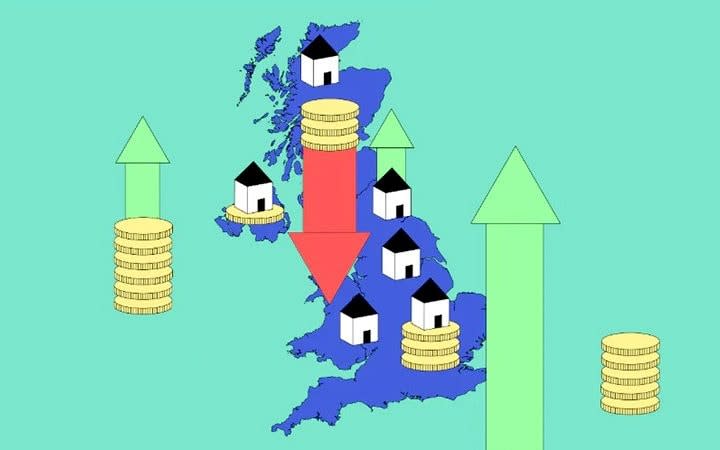House prices suffer biggest fall since 2012 – and ‘it’s going to get worse’

House prices have recorded their first annual drop since 2012, as mortgage lending falls to its lowest levels since lockdown.
House prices have dropped 1pc year-on-year, the first such drop in over a decade, according to the latest Halifax House Price Index.
The cost of a typical UK property is now £286,532, down from £286,662 in April, the bank said.
It found property prices have now fallen by about £3,000 over the last 12 months and by around £7,500 since the peak in August.
A strong property market last year was the reason for the annual drop, the lender said. In May house prices remained flat after a 0.4pc fall in April.
Higher borrowing costs and reduced affordability have led to a cooldown in the property market as lenders up their rates in reaction to core inflation. The market now expects rates to be higher for longer.
Kim Kinnaird of Halifax, said: “With consumer price inflation remaining stubbornly high, markets are pricing in several more rate rises that would take central interest rates above 5pc for the first time since the start of 2008. Those expectations have led fixed mortgage rates to start rising again across the market.
“This will inevitably impact confidence in the housing market as both buyers and sellers adjust their expectations, and latest industry figures for both mortgage approvals and completed transactions show demand is cooling. Therefore further downward pressure on house prices is still expected.”
This comes after building society Nationwide, in its latest house price index, said house prices fell at their fastest rate in May since 2009.
The two indices differ as their housing market data is based on the activity and data of their own customers.
Myron Jobson of investment platform Interactive Investor said: “It is becoming increasingly clear that the resilience of the property market in the first quarter of the year was a flash in the pan, with the impact from the affordability squeeze from high mortgage rates and high inflation filtering through.”
Mortgage lending has dropped significantly at the start of the year, according to separate data from the banking trade body UK Finance.
In the first three months of the year, lending fell to the lowest level since spring 2020 when the housing market was frozen during the first Covid-19 lockdown.
Meanwhile, the proportion of first-time buyers taking out a mortgage with a term of over 35 years soared to record high of 19pc in March as buyers tried to bring down their monthly repayments, it said.
Eric Leenders of UK Finance said “cost of living pressures and higher interest rates weighed on households”, saying: “Uncertainty around the inflation outlook has led to another bout of elevated volatility in swap markets, leading to some repricing by lenders. While this persists, we expect near term mortgage market activity to remain relatively fragile.”

 Yahoo Finance
Yahoo Finance 